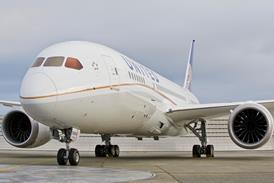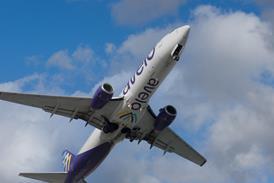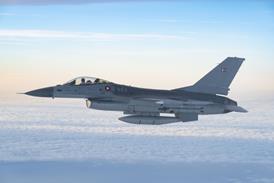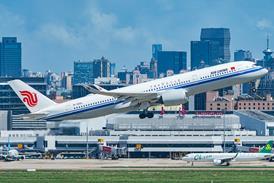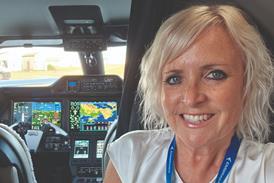With no early aviation ambitions, Julie Black’s chance encounter with a London City Airport job launched a 30-year career that has taken her from rocking all over the world to managing complex private jet operations for high-net-worth clients.
Becoming a jet-setting aviation professional was never one of Julie Black’s childhood career goals. Growing up in a working-class family in London’s east end, she was 16 before she flew on an airliner. However, by her 20s she was travelling the world with rock stars supporting tours for a specialist charter brokerage. It gave her a chance to combine, she says, what had become her two loves: aviation and music.
Now, managing the business aviation team at another brokerage, Hunt & Palmer, her job, based at the firm’s offices in rural West Sussex, involves less globetrotting. But she says she loves the unpredictable, fast paced, demanding nature of supervising every aspect of clients’ private travel requirements, whether they are bankers on a US roadshow, billionaires summering in Barbados, or bands playing stadiums in Sydney.
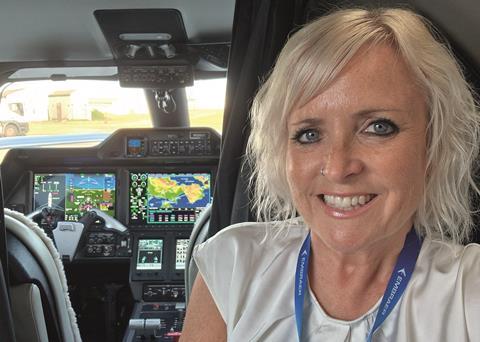
Black was the first in her family to go to university – few of her teenage friends did. After graduating with a degree in communications, she mulled becoming a teacher. Then, sheltering from the rain one day outside a temping agency, she popped in for want of something better to do and was offered a job as an administrative assistant with London City Airport’s marketing department.
This was the mid-1990s and the Docklands airport and the high-rise financial district emerging around it was still gleamingly new. “I had an incredible time there,” she recalls. “I thought it was incredibly glamorous with all these people in suits checking in 15 minutes before their flights to Europe’s business capitals. I thought this was the future and I was hooked. My love for aviation was established.”
CHARTER BROKERS
A five-year stint in marketing for Biggin Hill – a business and general aviation airport on the southern edge of the capital – put her in touch with charter brokers for the first time. That led to 15 years with brokerage Chapman Freeborn, where she went on to run its music tour arm, often flying with the performers all over the world and making on-the-spot travel arrangements.
She remembers it as a thrilling period in her life – tales included being chased by excitable fans at an airport while wheeling a certain Irish rock star’s personal effects to a waiting van. But the demands of long-haul travel and being on call 24/7 took its toll. “It was intense, and I was working on very little sleep,” she says. “I had two young daughters and was spending a lot of my time away. Even when I got home, I wasn’t present. Something had to change.”
In 2017, she moved to Chapman Freeborn’s rival Hunt & Palmer, where her current job as manager, executive aviation involves running the brokerage teams across the family company’s business aviation and music touring divisions. Clients include high-net-worth individuals, financial institutions and corporations, high-end travel agencies, and tour promoters.
Like all brokers, Hunt & Palmer does not hold an air operator’s certificate or operate flights itself but charters them on behalf of customers, often getting involved in other aspects of the journey, from arranging ground transport and pet permits to ensuring the principal’s favourite meal or beverage is on board. Black describes the personal service Hunt & Palmer provides as more flight management than pure brokerage.
She rarely knows how each day will pan out when she arrives for work. The music side is often the “most planned it gets” with tours organised months in advance to the last detail. Those details can be crucial. Often a performance will end too late for a departing aircraft to beat a night-time curfew. At other times, an airport will not have a separate fixed-base operation or private terminal, leaving the entire entourage – together with their luggage and equipment – to negotiate the passenger building.
On the corporate side, deadlines tend to be much tighter. “It can be two or three weeks out; at other times it’s ‘go now’,” says Black. Her record from point of request to clients boarding the aircraft is 38 minutes. A group of Swiss financiers in London had to get to Zurich for a crisis meeting; Black located a business jet that had just landed at City Airport and had no other flight planned that evening. The bankers were in the air within the hour.
In 2026, Hunt & Palmer will be 40 years old. Founders Peter Hunt and Jeremy Palmer are still involved with the business although they have handed over to a senior management team the day-to-day running of a company that has a global client base and satellite offices in Dallas, Daytona, Australia’s Gold Coast and Hong Kong. Black says one of the firm’s strengths is the loyalty it inspires in its long-serving staff. “The company is part of their DNA,” she maintains. “It’s the people that really make this place.”
COLLECTIVE EXPERIENCE
Charter brokerage is a competitive business, and one in which trusted relationships built over years are crucial. With modern technology supplementing industry knowledge and contact books, it is often tempting for individual agents to set up on their own and take customers with them. “But when they do that, clients risk losing this machine behind them,” says Black, pointing out her busy office. “There is so much collective experience here, as well as the group’s reputation and buying power.”
Black, who is deputy chair of the Air Charter Association industry body, is saddened by the lack of understanding from politicians and other opinion-formers of a sector that creates economic value and societal benefit, especially in Europe. “Slots and airport access are a huge problem that is only getting worse, which is terrible for our industry when it comes to promoting the flexibility of business aviation,” she says.
While picking on billionaires in business jets may not be a vote-loser, Black says many of her clients “also fly on EasyJet or Ryanair” and private jets are more about convenience, security, and saving time than travelling in opulence. In addition, she says business aviation’s pioneering environmental contributions are often overlooked, including being the first to adopt winglets and sustainable aviation fuel.
Black is an advocate for encouraging women into the sector, and not just as cabin crew. “When I started and said I worked in aviation, people asked: ‘Oh, are you a stewardess? But it’s slowly getting better,” she says. “As natural multi-taskers, women tend to be good at this job, and we often have greater human sensitivity, which makes us better at the soft skills when dealing with people. But don’t get me wrong. I love planes too. It still blows me away that a business jet can fly for 16 hours.”
Black maintains that after 30 years in the business she still “learns something new every week, if not every day”. It is also a job that inspires pride. “When an artist steps out in front of 80,000 fans, you think: ‘I helped make that happen’. Or it could equally be when you’ve arranged for a child in Africa to be medevac’d to Europe for life-saving cancer treatment.”
And in a high-pressure profession, a thank-you goes a long way. “People only normally contact you when things go wrong,” she says. “So, when things go well, and someone sends a note to say so, it still makes us feel good.”

